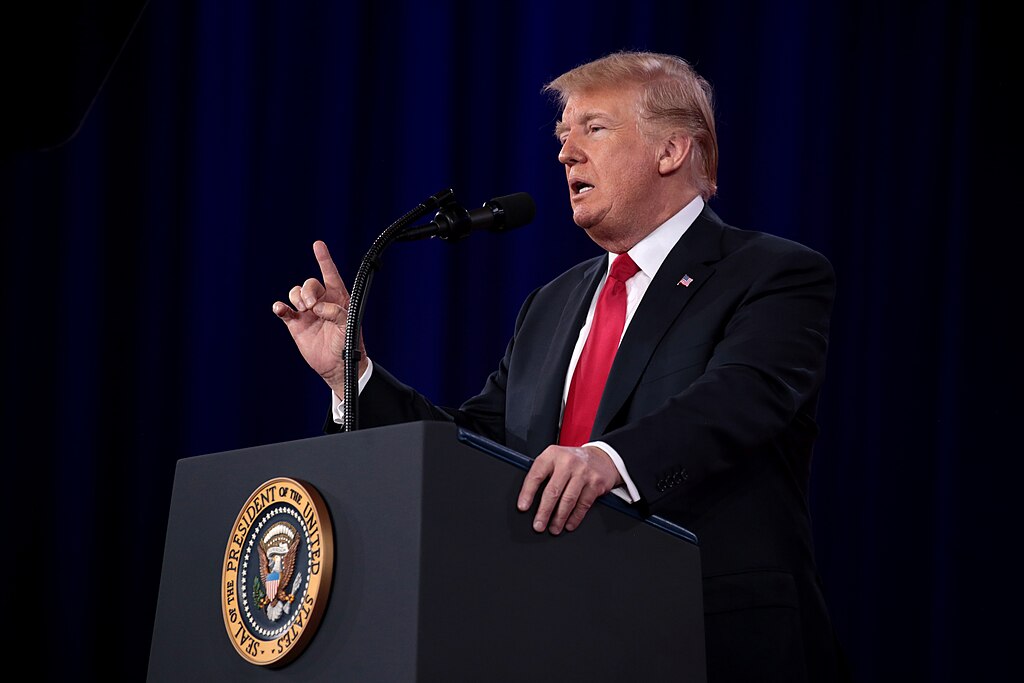As President Donald Trump embarks on his 2025 agenda, his administration has turned its focus to closing income tax loopholes that disproportionately benefit corporations and high-net-worth individuals. This aggressive effort aims to bolster federal revenue, ensure fairness in the tax system, and ease the burden on middle-class Americans. However, the proposed reforms have sparked widespread debate among policymakers, economists, and taxpayers.
Targeting Corporate Tax Loopholes
Reducing Offshore Tax Shelters
The Trump administration’s primary focus is curbing the use of offshore tax shelters by multinational corporations. A recently proposed regulation would penalize companies for shifting profits to low-tax jurisdictions, requiring them to pay U.S. taxes on global earnings. Treasury Secretary Steven Mnuchin stated that the measure aims to “level the playing field for domestic businesses.”
Critics argue that this policy could discourage foreign investment and potentially harm economic growth. However, proponents assert it could recover billions in lost revenue and incentivize companies to reinvest in the United States. For instance, a Congressional Budget Office report estimates that closing offshore loopholes could generate $50 billion annually.
Limiting Deductions for High-Income Earners
Another key proposal involves capping deductions for the wealthiest Americans, including mortgage interest and charitable contributions. The administration argues that these deductions unfairly benefit high-income individuals at the expense of the federal budget.
Economists remain divided on the potential impact. Some warn this could reduce charitable giving, while others highlight that it ensures wealthy taxpayers contribute their fair share. Social media has been abuzz with reactions to these controversial changes.
Addressing Middle-Class Concerns
Expanding Tax Relief Programs
To offset the effects of closing loopholes, Trump’s administration has pledged to expand tax credits for middle- and low-income families. These measures include increasing the Child Tax Credit and Earned Income Tax Credit, both of which aim to reduce economic inequality and support working-class families.
Advocates praise these efforts as meaningful steps toward equity, but detractors question whether these adjustments will be sufficient to counterbalance potential economic disruptions. “These credits are great, but they must accompany broader reforms,” said an economist at the Brookings Institution.
Netizens React: Divided Opinions on Social Media
- @TaxReformNow: “Finally, a president addressing tax fairness! These loopholes hurt everyday Americans while the rich get richer.”
- @CorporateWatchdog: “Multinationals dodging taxes? Not under Trump! This could bring billions back to the U.S. economy.”
- @MiddleClassMom: “Capping deductions? How does that help families like mine? Looks like a half-baked plan.”
- @InvestorRights: “Offshore penalties will backfire. Companies will simply find new ways to game the system.”
- @CharityAdvocate: “Limiting charitable deductions? That will hurt nonprofits more than it helps the budget.”
- @ProgressiveVoices: “Tax reform is great, but let’s be real: Will this truly close the wealth gap?”



 Trump Warns Iran as Gulf Conflict Disrupts Oil Markets and Global Trade
Trump Warns Iran as Gulf Conflict Disrupts Oil Markets and Global Trade  Argentina Senate Approves Bill to Lower Age of Criminal Responsibility to 14
Argentina Senate Approves Bill to Lower Age of Criminal Responsibility to 14  Israel Declares State of Emergency as Iran Launches Missile Attacks
Israel Declares State of Emergency as Iran Launches Missile Attacks  Pakistan-Afghanistan Tensions Escalate as Taliban Offer Talks After Airstrikes
Pakistan-Afghanistan Tensions Escalate as Taliban Offer Talks After Airstrikes  Russia Signals Openness to U.S. Security Guarantees for Ukraine at Geneva Peace Talks
Russia Signals Openness to U.S. Security Guarantees for Ukraine at Geneva Peace Talks  Germany and China Reaffirm Open Trade and Strategic Partnership in Landmark Beijing Visit
Germany and China Reaffirm Open Trade and Strategic Partnership in Landmark Beijing Visit  Trump Launches Operation Epic Fury: U.S. Strikes on Iran Mark High-Risk Shift in Middle East
Trump Launches Operation Epic Fury: U.S. Strikes on Iran Mark High-Risk Shift in Middle East  NYC Mayor Zohran Mamdani Meets President Trump to Tackle Housing Crisis and ICE Detentions
NYC Mayor Zohran Mamdani Meets President Trump to Tackle Housing Crisis and ICE Detentions  HHS Adds New Members to Vaccine Advisory Panel Amid Legal and Market Uncertainty
HHS Adds New Members to Vaccine Advisory Panel Amid Legal and Market Uncertainty  Macron Urges Emergency UN Security Council Meeting as US-Israel Strikes on Iran Escalate Middle East Tensions
Macron Urges Emergency UN Security Council Meeting as US-Israel Strikes on Iran Escalate Middle East Tensions  U.S.-Israel Strike on Iran Escalates Middle East Conflict, Trump Claims Khamenei Killed
U.S.-Israel Strike on Iran Escalates Middle East Conflict, Trump Claims Khamenei Killed  Trump Floats Ted Cruz for Future U.S. Supreme Court Nomination
Trump Floats Ted Cruz for Future U.S. Supreme Court Nomination  Trump Floats “Friendly Takeover” of Cuba as Rubio Reportedly Engages in Talks
Trump Floats “Friendly Takeover” of Cuba as Rubio Reportedly Engages in Talks  ICE Hiring Surge Raises Vetting Concerns Amid Rapid Expansion
ICE Hiring Surge Raises Vetting Concerns Amid Rapid Expansion  Denver Mayor Orders Police to Protect Protesters, Restricts ICE Access to City Property
Denver Mayor Orders Police to Protect Protesters, Restricts ICE Access to City Property  Pentagon Leaders Monitor U.S. Iran Operation from Mar-a-Lago
Pentagon Leaders Monitor U.S. Iran Operation from Mar-a-Lago  Australian PM Calls Alleged Western Australia Terror Plot “Deeply Shocking” After Arrest
Australian PM Calls Alleged Western Australia Terror Plot “Deeply Shocking” After Arrest 
































